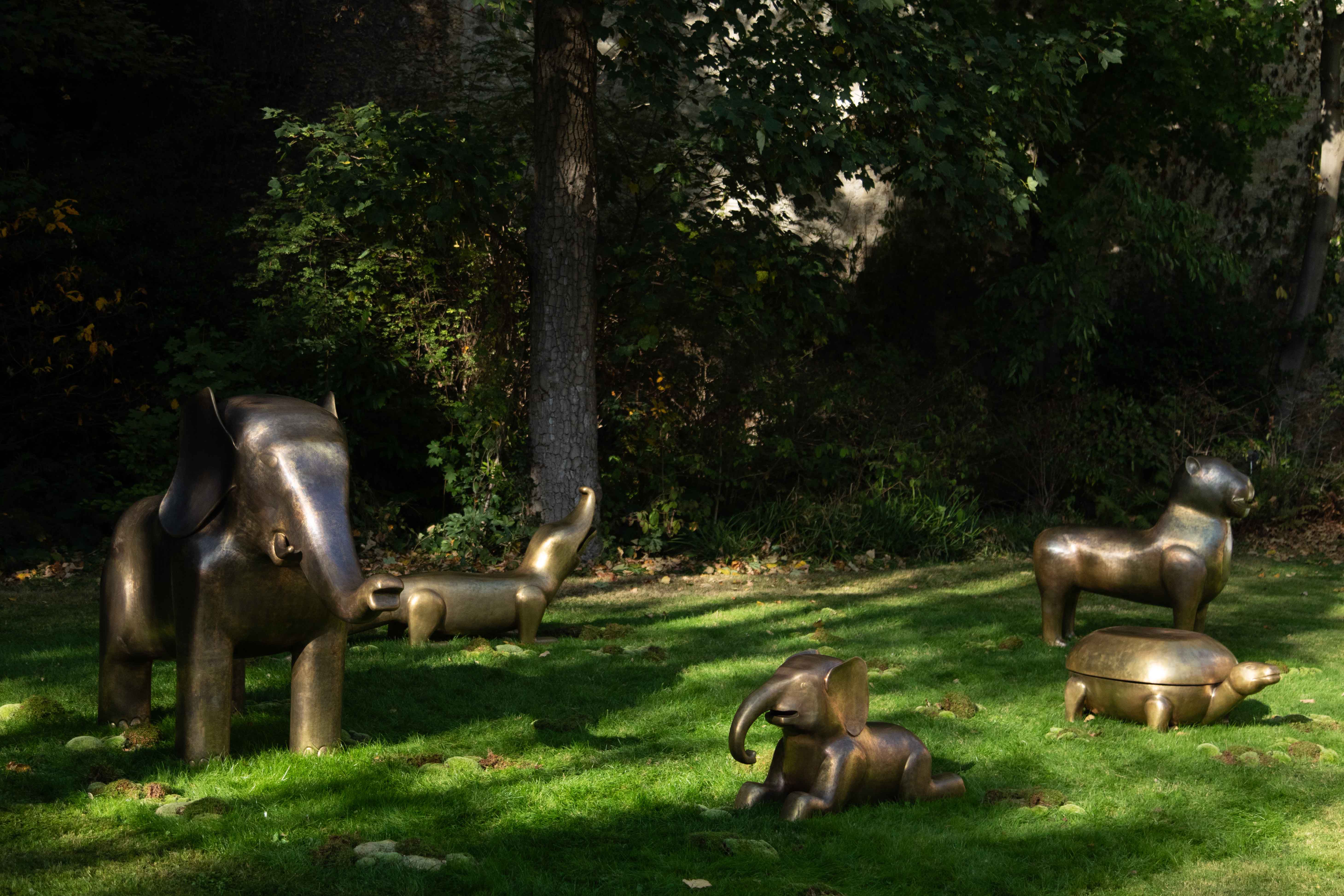
The Soul Garden draws from India’s deep reservoir of culture and literature, where animals are revered as divine beings with profound spiritual significance. This reverence has guided their protection and veneration over centuries. Some appear as sacred vehicles; others wander through the fables of the Panchatantra, teaching parables of virtue and folly.

Vikram Goyal is a New Delhi-based designer whose multidisciplinary studio practice is rooted in the reinterpretation of Indian craft traditions, particularly metalwork, for a global contemporary audience.
Vikram Goyal leads his studio practice with innovative craftsmanship, composing a new contemporary design vocabulary from India.For over two decades, the studio has created collectible design objects with a focus on metal, particularly brass, as its primary material.
Founded by David Alhadeff in 2003, The Future Perfect is among the world’s leading contemporary design galleries, known for its visionary curatorial program that blends studio works with one-of-a-kind and limited editions.
Based in Berlin, Sissel Tolaas is a pioneer in the field of olfactory art, transforming scent into a conceptual and experiential medium.

In The Soul Garden, each animal is chosen for the depth of its symbolic weight, embodying virtues and stories that span generations: the Tiger (Vyaghra) as power, stealth and protection, the Elephant and the Baby Elephant (Gaja and Karabha) as wisdom, memory and communication, the Tortoise (Kurma) as endurance, patience and cosmic time, the Crocodile (Nakra) as strength, adaptability and primal force. Each transcends form to become a vessel of spirit — a personification of belief.
Storytelling is one of humanity’s first inheritances. In India, the torch of wisdom is often passed through animals as lead characters, who become teachers and mirrors of human nature. Nowhere is this legacy more alive than in the Panchatantra, a beloved Indian treasury of fables. Composed around 300 BC, it was designed as an educational tool, created to guide in the subtleties of leadership, judgment, and human behavior. Its name—Pancha (five) and Tantra (principles), signals its purpose: to distill the five essential principles of life.